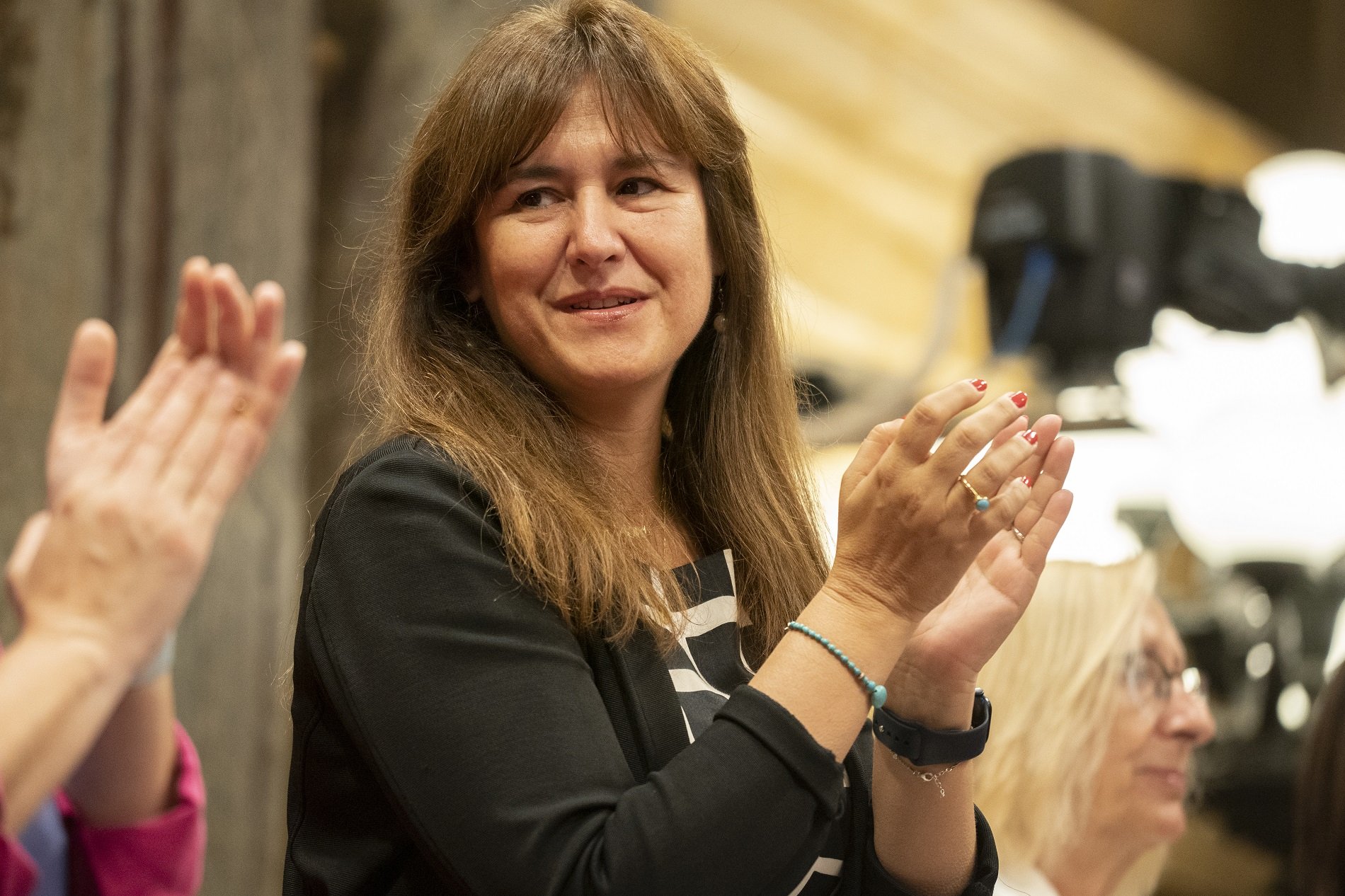On Wednesday, lawyer Gonzalo Boye submitted an appeal on behalf of Laura Borràs, speaker of the Catalan Parliament and Junts' president. The appeal requests that the civil and criminal chamber of the High Court of Catalonia (TSJC) hears the challenge "for lack of impartiality" against Carlos Ramos, examining judge in the Institute of Catalan Letters (ILC) case. In the appeal, Boye claims that the examining judge shows "undue haste" to finish the proceedings against Borràs, particularly for dismissing his challenge, as well as the arguments against the prosecution of Borràs for her management of the ILC from 2013 to 2017. The public prosecutor already announced it is asking for a six-year prison sentence and a 21-years ban from holding public office for the crimes of forgery and perversion of justice. Aside from this appeal, Borràs' defence has until next Monday to file an appeal against her prosecution. These appeals, however, do not prevent the judge from starting the hearing against Borràs at any time, a fact that will open Pandora's box in the Catalan Parliament.
In last Friday's ruling, Judge Carlos Ramos dismissed Boye's challenge, arguing that its underlying reasons —Ramos' appointment in 2004 from a shortlist proposed by the PSC-led tripartite government— had already been dealt with in other challenges two years ago, and they were not accepted. Furthermore, he added that no appeal was possible about this issue. By contrast, in the document, Boye states, he is "surprised" that the judge "has not even complied with the basic formalities" established by the Organic Law of the Judiciary, according to which the other parties in the proceedings must be informed, so they can state if they support the challenge or have other motives.
The "misuse of rights" argument
Borràs' lawyer criticises the TSJC examining judge for accusing him and his client of "misuse of legal rights" or "procedural fraud", when "the misuse stems from not applying basic procedural rules", which according to Gonzalo Boye "leads to (the) actual defencelessness" of the speaker of Parliament and president of Junts. Boye requests that the TSJC chamber hears the challenge against judge Ramos as laid down by law.
In the appeal, the criminal lawyer also criticises the judge for arguing that as a challenge against him was rejected, no more challenges can be submitted, "as if it were a cause judged which would render him immune to any other challenge". Boye states that "the right to an impartial judge is, first, absolute and, second, individual in nature", and adds that in the other cases mentioned by the judge, his opinion was upheld by the national courts "but all cases are yet to be heard by the European Court of Human Rights (ECHR)".
New grounds for challenges
Borràs' lawyer points out he provided other facts that cast doubt on Judge Carlos Ramos' impartiality. For example that he signed a report jointly with Jesús Maria Barrientos, president of the TSJC, against the grounds for the challenge submitted by the prosecuted pro-independence members of the Bureau of the Parliament, presided by Roger Torrent. The TSJC accepted Josep Costa's arguments and removed Barrientos from the court in charge of the case. "There is no doubt of the animosity, to put it in neutral terms, against not only those who challenge them in the proceedings, but also for the political option represented by those political leaders", maintains Boye, referring to the pro-independence leaders of Junts and ERC, and "especially", he adds, Laura Borràs, who "succeeds Torrent".
Boye repeats the reasoning of the TSJC chamber that examined the challenge against Barrientos —and that accepted Josep Costa's request— assuring the judge's arguments "are understandable in human terms and for the defence of the professional prestige and integrity, but could arouse a legitimate suspicion of lack of impartiality in the challenger ". Boye adds that his client, Laura Borràs, "already suspects this".
The lawyer states that judicial impartiality is "a mandatory requirement" and is enshrined in the European Convention on Human Rights, the EU Charter of Fundamental Rights and the Constitution itself. For all these reasons, Boye asks the TSJC chamber to admit his appeal against the examinating judge's decision of July 15th and to hear the challenge against Judge Carlos Ramos.
In parallel to the criminal case, Laura Borràs already stated she will not resign from her post and asked her colleagues in the Catalan Parliament not to condemn her before she has been tried.

